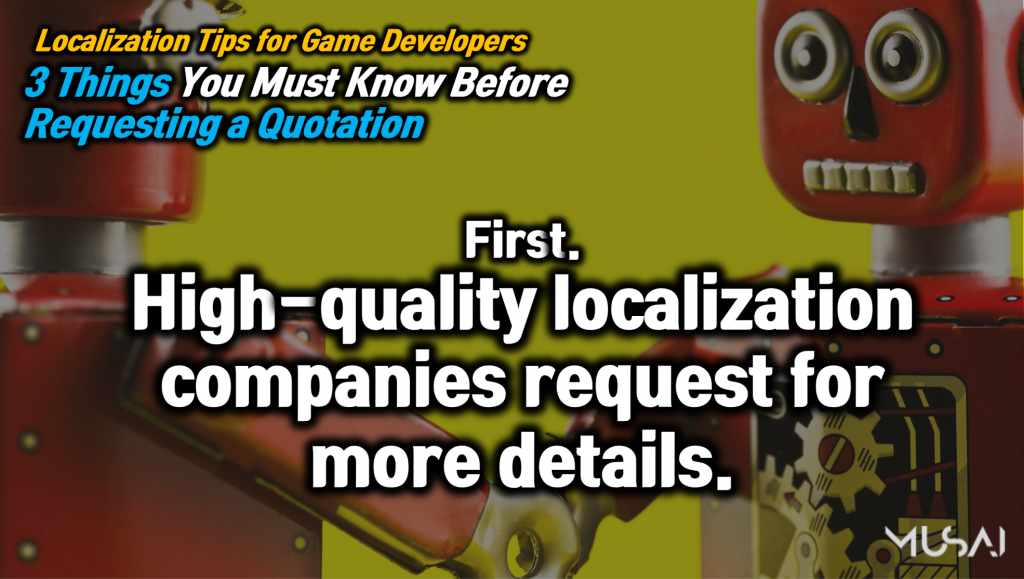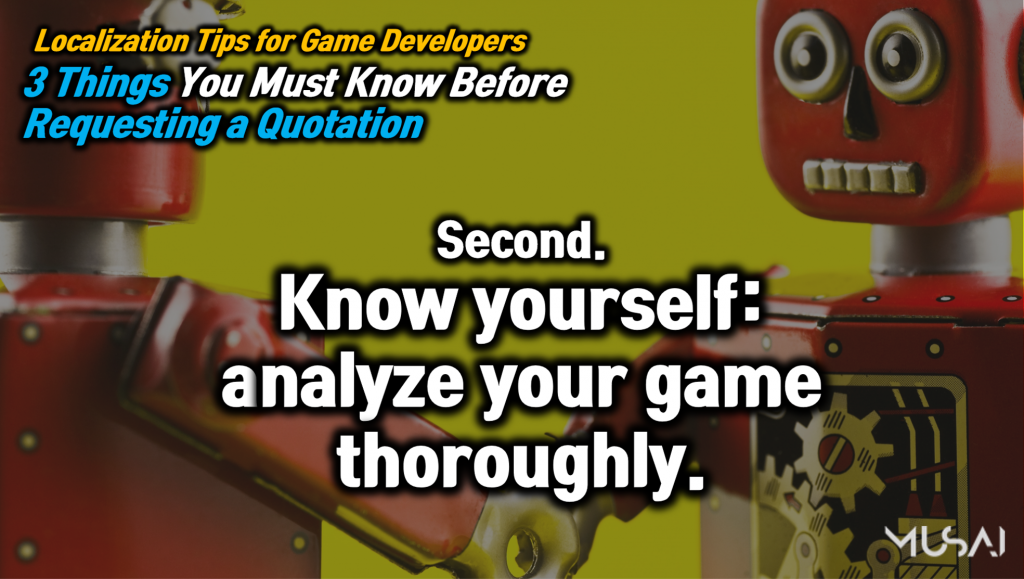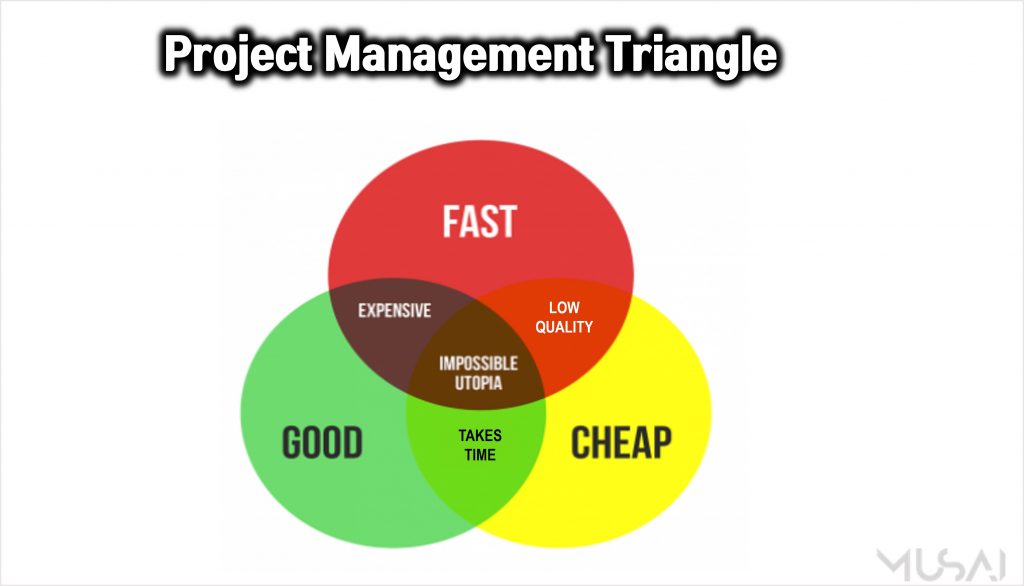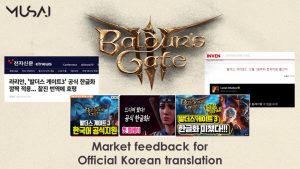[MUSAI] Localization Tips for Game Developers: 3 Things You Must Know Before Requesting a Quotation

2021-05-17
Language localization has become an essential part to reach global markets. To get it done, one must request a quotation to a localization agency, the first step of communication. In doing so, if you are unsure of what to ask for, and which criteria you should check, this is the article that you must not miss out on. “The 3 useful tips you need to know before requesting a quotation.” Remember these, then you will be able to communicate with any localization agencies without any difficulty.
First. High-quality localization companies request for more details
When requesting a quote from a localization company, you can estimate the company’s level of expertise by looking at the materials the company requests. If a company does not ask for much material and if you think that is convenient, you are sorely mistaken. Games, especially, to the level of understanding of the game determines the quality of its localization. In other word, one needs to grasp the game’s world, setting, personalities and characteristics of its characters. Thus, when you request an estimate for localizing your game and the localization company only request for a source text file, the quality cannot be good. Rather, look for a company that asks for a bunch of data, including the outlook of its setting, character lists with its personalities and background, illustrations and description, data that can be used for scenario analysis, playable APKs, etc. See how much material companies request. Then, you can see how professional they are.

Second. Know yourself: analyze your game thoroughly
You might ask, “I made this game, what do you mean to analyze it?” Analyzing a game for language localization is a little different, for we all have a limit called ‘budget,’ and you might need to practice ‘select and concentration strategy’ for choosing which material to be localized.
The amount of text to be translated and its target language may be different depending on the game’s details. For example, the game is scenario-oriented which the characters’ dialogues have much impact on the gameplay, the whole dialogue may be translated. On the other hand, if the game is playable with only its UIs translated, only the UI and terms may be localized. As for the dialogues, you can decide to get the translation for the main storylines and lines depicting the character’s personalities and history only, excluding the lines that are not related to gameplay. For example, if you think users in certain countries wouldn’t be interested in a certain story, you can just leave it. Of course, if you have enough budget to get the whole game translated, none of these would matter.
When requesting a quote from localization companies, developers generally send the source text file extracted from the development build to each company. However, it is more important to deliver its contents, such as the genre of the game, how the game is different from other games, which settings the story is based on, the background, fun factors of the game, etc. This will allow you to get a more accurate quote, and if you need feedback on the language selection, the localization company may provide much precise suggestions by analyzing the contents. Every game is precious for developers. So do not just say “do it as you will, you are the expert.” Summarize the necessary materials for the localization process before requesting a quote.

Third. The more you know about the localization process, the easier to negotiate
The standards for making estimates are also different for each company. If only every company provides an explanation to its quotation and its criteria, it will be much easier. However, when something feels off about the quotes, knowledge itself can tip the scales.
We have discussed the process of setting up and sharing the large picture for the direction of localization of the game, with the second tip introduced above, “Know yourself: analyze your game thoroughly.” Now, we are looking into its detail; you need to set the criteria for localizing each part, and request for quotation accordingly. Then, what are those details? Assuming the development company is doing the localization in-house, let’s summarize the necessary processes and conditions. For example, apart from the plan and character bio mentioned on the second part, the factors below need to be considered.
- Types of CAT Tools used (if any)
- Repetition counts
- Variable and tags to be excluded
- Category classification of each translation file (for example, classification by speaker and appearance environment, etc. in case of scripts)
If the estimate is done like above, the localization company would learn exactly how to work on the project, and thus may start right away smoothly when the company is selected.
It also applies to budgets. You need to know how much it costs when the process is done in-house with freelancers or contractors, to estimate the total cost of outsourcing. However, many development companies, those with a purchasing department in particular, tend to bid to save budget. In other words, after sending out its source files to get quotations from several localization companies, they tend to choose the one that offered the lowest price. There is nothing wrong with this method, but if the quality of translated files is not inspected thoroughly, it may not be reliable.
Additional tip. If language localization is processed within the development company
If a development company or a publisher process localization internally depending on its circumstances, for example, if there is much to be translated consistently, and hire translators or set up a team even, refer to our previous posts for more tips.
◆ Localization Recruiting Ep1. “Who is the Best for the Draft Translation of Gaming Contents?”
[MUSAI] Localization Recruiting Ep1. “Who is the Best for the Draft Translation of Gaming Contents?”
◆ Localization Recruiting Ep 2. How to Find the Best Localization Vendors for Your Game
[MUSAI] Localization Recruiting Ep 2. How to Find the Best Localization Vendors for Your Game
◆ Localization Recruiting Ep3. How to recruit localization staff for the Korean language
[MUSAI] Localization Recruiting Ep3. How to recruit localization staff for the Korean language
You may have seen the following image on Facebook or LinkedIn. You can also search for “Good Fast Cheap” on the web. On the triangle, it says: If the quality is high and fast, it is expensive; if the quality is good and cheap, it is slow; if it is fast and cheap, the quality is poor… Thus, you have to choose only 2 of them.

Adding a personal comment after handling numerous projects as a localization agency, achieving only two out of those three, ‘Fast,’ ‘Good,’ and ‘Cheap,’ was only possible with the support from our clients. Only when the clients provide the scope of their needs, necessary materials to reach their expectations, and present crystal-clear goals, a localization company can demonstrate their full capacities. We hope this article would provide some guidance to find the balance between the three, “Fast,” “Good,” and “Cheap.”
** Did you enjoy the news of Musai? Please click subscribe and share the story.
BOOST YOUR PLAY! Musai Studio







